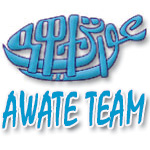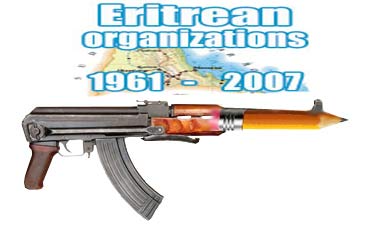Norwegian Parliament And The Issue of Harassment of Eritrean Norwegians
the original minutes of ‘Question Time’ on issues raised by MP Torbjørn Isaksen, a Parliament (Stortinget) member from the Conservative Party of Norway (Høyre) and responses by the Justice Minister, Knut Storberget in the Norwegian Parliament on 08.04.2010.
MP Isaksen was interviewed by Norwegian Broadcasting Corporation (NRK) during a demonstration by Eritreans against the Eritrean regime held in front of the Parliament on May 25, 2010 and he stated thatt Eritrea is one of the worst terrorist regimes in the world, and that a dialogue with Eritrea by Norwegian authorities is valueless unless it raises the issue of human rights in Eritrea and the harassment by the Eritrean Government of Eritrean Norwegians who live in Norway.
The following is a direct translation from Norwegian.
Question 5
Torbjørn Røe Isaksen (H) [11:45:35]: ”Many Eritreans in exile pay 2 per cent of their income to Eritrean authorities. NRK Urix 24 March 2010 showed that many Eritreans in Norway are afraid of reprisals from the regime. The practice, as described in ”Eritrea: Issuing of passport and travel permission” from Landinfo 24 November 2009, implies extortion of human beings, including Norwegian citizens, by a foreign power. How long has the Minister of Foreign Affairs been aware of this practice, and what is his opinion about the extortion done by a former recipient of aid that Norway has diplomatic relations with?
Minister Knut Storberget [11:46:14]: The question was originally addressed to the Minister of Foreign Affairs, but passed on to me as the correct addressee, since I have also previously answered a similar question. I refer to written question number 949, from Torbjørn Røe Isaksen, and my answer of 8 April, that is available on the Parliament’s website. As I then wrote, I have on the basis of the question from MP Røe Isaksen familiarised myself with Landinfo’s note of 24 November 2009, in which it is made clear, among other things, that Eritreans in exile are imposed to pay 2 per cent of their gross income to Eritrean authorities.
The specialist unit (fagenhet) for country information, Landinfo, within the foreigner administration (Utlendingsforvaltningen) is part of the foreigner administration and administratively subordinated to the foreigner directorate (Utlendingsdirektoratet). Landinfo produces reports and thematic notes and answers concrete requests about country information for use in handling individual cases in the foreigner directorate and foreigner committee (Utlendingsnemnda). The management structure in the foreigner field does not require of the foreigner directorate (Utlendingsdirektoratet) that it reports about this kind of information to the Ministry, and the directorate has not done it in this case.
Beyond the information on Landinfo’s website, I do not have any further knowledge of the practice of taxation of Eritrean citizens in exile. There is reason to emphasize that taxation of one’s own citizens is not in itself criticizable. Whether Eritrean authorities exercise illegal extortion of people in Norway, I do not have any basis or cause to get into detail about, beyond what is established through Landinfo’s information. People who feel subjected to such illegal extortion, should in my opinion report this to the police, so that the case can be investigated in an ordinary manner, albeit with all the challenges that follow in such cases.
Torbjørn Røe Isaksen (H) [11:48:08]: I am pleased that the Minister now, also in relation to previous questions, has familiarised himself with the case. This case raises two problems. It is important to be aware that his is not only about Eritrean citizens in exile, but also – if one is to believe what NRK Urix has shown – about Norwegian citizens who have had citizenship after having fled the regime in Eritrea.
The one problem that is raised, is that one about undue pressure, that it is a foreign regime that indirectly exercises pressure on Norwegian citizens, or also Norwegian citizens. The other is that this practice, as described among others by Landinfo, is a practice that to to get ’forgiveness’ by the home country and to be able to lead a normal life, maintain contact with the family or have economic interests in the home country, one has to by oneself free from previous ties to the regime.
My question is if the Minister of Justice will investigate this case more closely and take action.
Minister Knut Storberget [11:49:14]: With this kind of problem, we’re facing quite big challenges with regards to the enforcement of Norwegian law.
I only wish to express very clearly – in this, I believe the one asking the question and I are in full agreement – that as for the undue pressure that is addressed, be it towards Norwegian citizens, people with dual citizenship or Eritrean citizens, it can come under the legislation of the Norwegian penal code – quite obviously. We have rules for that.
When people are subjected to pressure, and in particular when this is related to social benefits or the need for more life quality, whether this is to do with travelling or other things, we have rules for it. This is why it is is important to say very clearly that in such situations, one must report it, to the extent that one is subjected to it, because it may have consequences covered by the penal code, but it may also have consequences for how we as Norwegian authorities handle the respective cases towards persons independently of where they come from, or what citizenship he or she has.
Torbjørn Røe Isaksen (H) [11:50:20]: There is also another aspect about this, and that is that from the moment ona has gotten ’forgiveness’ from the home country, from Eritrea, and gets the opportunity to have financial interaction, own property or maintain contact with family, it is also the case – if one is to believe information from the NRK – that one signs a so-called forgiveness letter. This also raises some questions to do with these individuals’ need for protection. Then one can speculate, or it is at least worth asking the question, if this is a form of established, planned practice by the Eritrean authorities’ side. Therefore, I want to repeat my question, not only if it is possible to legally pursue pressure or threats indirectly – it is, obviously, but if the Minister of Law intends to look more closely into this case and possible take action if it proves that this is an organised phenomenon, a widespread phenomenon, that in my opinion Norway should not permit?
Minister Knut Storberget [11:51:24]: I remind that in this case, we are talking about a situation that has been imposed on citizens, either of Eritrea, Norway or both, and that we cannot necessarily apply the Norwegian legal system to. What I believe is decisive in this case, is that Landinfo is aware of the problem and brings that into all considerations made by the foreigner unit. What I think we should be observant about, is that when one makes decisions in Norway with consequences for citizens who are in such a situation, one takes into account these considerations also in relation to the question of persecution. This is why I mean that Landinfo and the foreigner administration have done their job, and in this respect that one has addressed this in the reports that go to the foreigner directorate (Utlendingsdirektoratet) and the foreigner commission (Utlendingsnemnda) who make the respective decisions. So I am confident that this is taken into account when one is making decisions that are relevant for the sector that I am in charge of.



Awate Forum